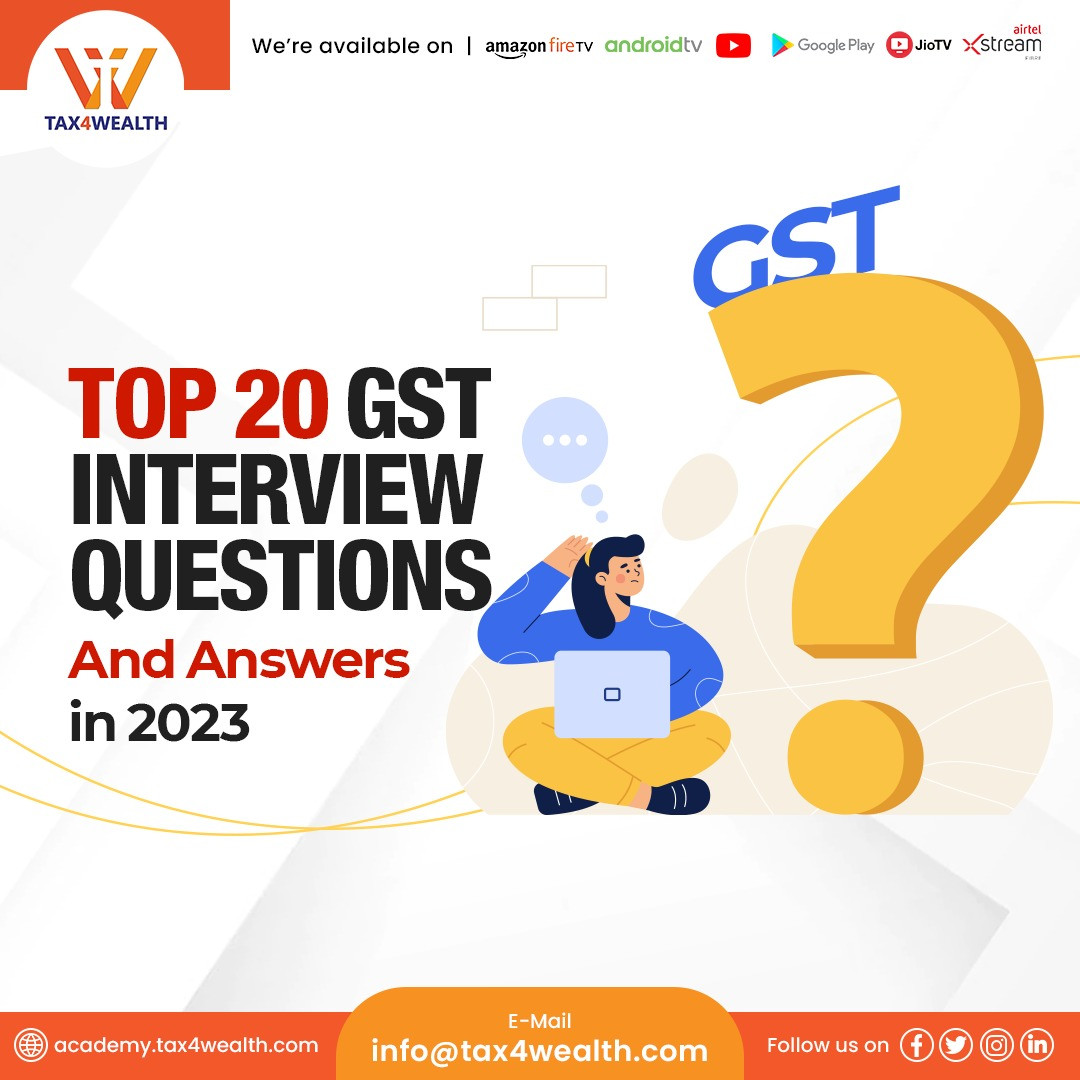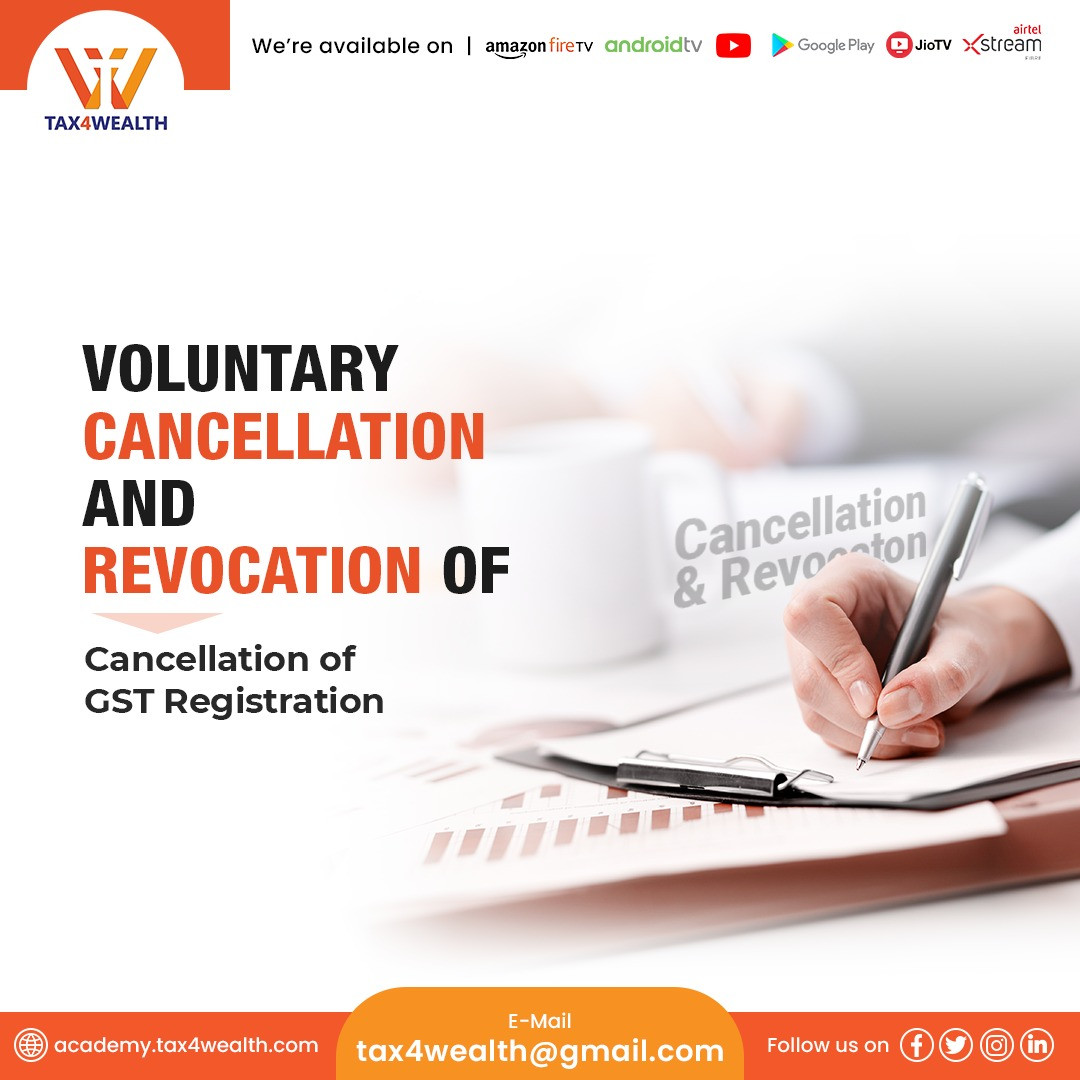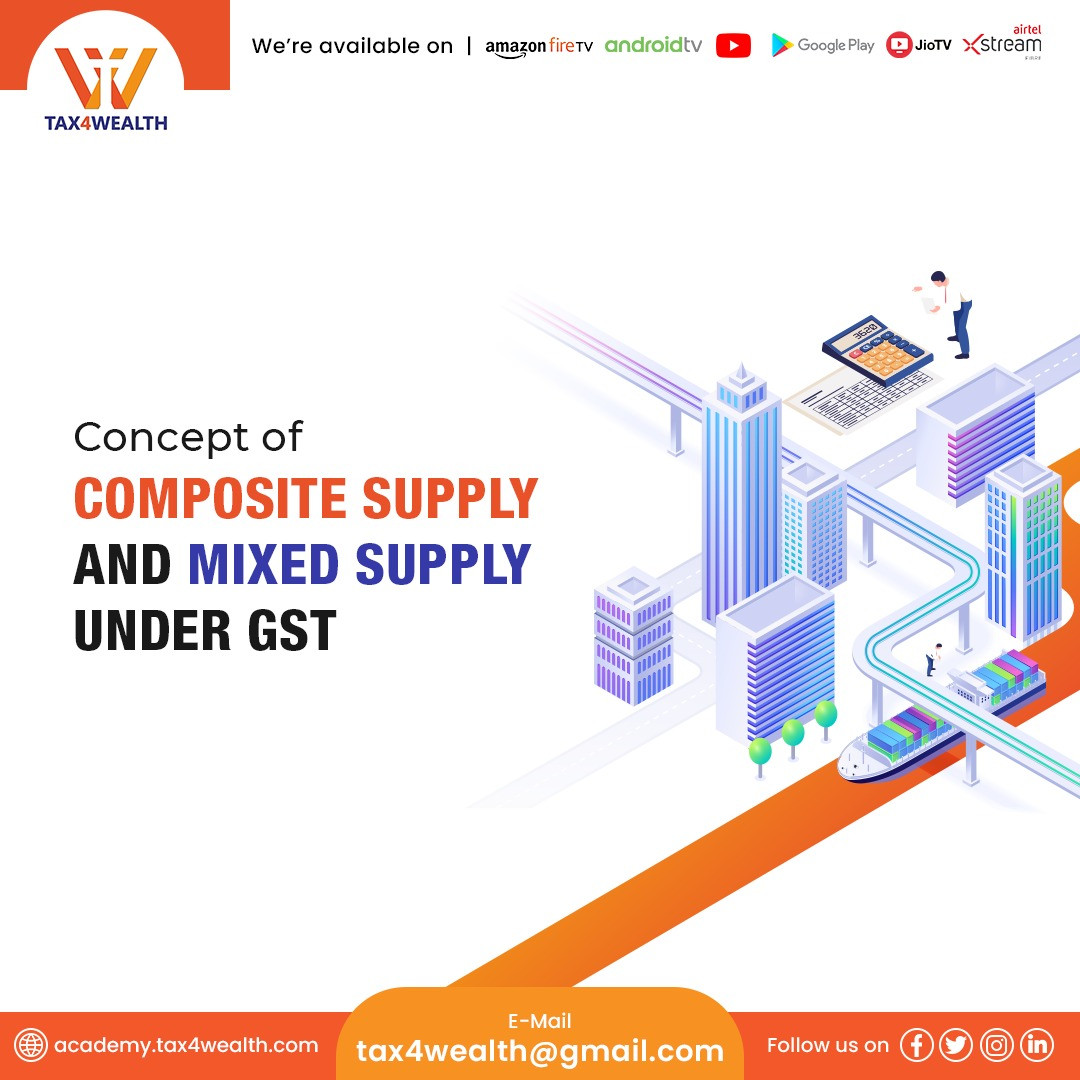
Top 20 GST Interview Questions and Answers in 2023
What is the GST?
An indirect tax imposed on the provision of goods and services is the Goods and Services Tax (GST). To put it another way, the Goods and Services Tax (GST) is a comprehensive, multi-step tax that is imposed at each stage where value is added. The only domestic indirect tax in the entire nation is the GST.
The Goods and Service Tax Act was enacted by Parliament on March 29, 2017, and it went into force on July 1 of that same year.
All Indian states, including union territories, have the same GST rate and adhere to the same laws.
Academy Tax4wealth is the best place to fulfill your ambitions if you're seeking a career that specializes in GST or if you want to learn more about it in-depth. They provide online GST certification courses that are guaranteed to get you a job. This would be a valuable addition to your skill set.
The Top 20 GST Interview Questions and Answers for 2023 are as follows:
Q.1 What Taxes Were in Place Before the GST, and Why?
Many indirect taxes were imposed; however, the GST has since taken its place. These include the Central Excise Duty, Countervailing Duty, Service Tax, Special Countervailing Duty, Central Sales Tax (CST), Value Added Tax (VAT), Entertainment Tax, Octroi, Entry Tax, Lottery Taxes, Advertisement Taxes, Purchase Tax, Luxury Tax.
Q.2 What does "remission of tax/duty" mean to you?
If products are lost or destroyed due to a natural disaster, the taxpayer is not obligated to pay tax on such items. By the law and the missionary norms, some additional conditions apply.
Q.3 How do reverse charge mechanisms (RCMs) work? Is it only applicable to services?
Under the GST, a process called the Reverse Charge Mechanism reverses the normal cycle of tax payment.
No, the reverse charge mechanism is used in the provision of both goods and services.
Q.4 Under the Model GST Law, may the Working Government exempt supplies from GST collection?
Yes. The Central or State Government may exclude the supply from the GST levy based on the GST council's proposal in general or subject to restrictions, according to a provision in Section 10 of the Model GST Law.
Q.5 What Does a GST Taxable Event Mean?
A taxable event must occur for the tax to be collected; intrastate shipments are subject to CGST, SGST, and IGST, whereas interstate supplies are subject to IGST.
Q.6 How Do You Define GST Credit?
The GST Credit is what happens when the input GST is higher than the output GST. The calculation varies depending on the kind of GST.
Q.7 What are the differences between CGST, SGST, and IGST?
1. Central Goods and Services Tax is referred to as CGST. Sales within the State are subject to CGST, which is collected by the Central Government. Central Excise and Service Tax are replaced by CGST.
2. The State Government collects SGST (State Goods and Services Tax) on local sales made inside the State. Taxes including the VAT, entertainment tax, and luxury tax will be replaced by the SGST.
3. Central sales, or those made outside of the state, are subject to the IGST (Interstate Goods and Services Tax). The Central Government collects this as an Interstate Supply of Goods and Services. Taxes like CST (Central Sales Tax) are replaced by IGST.
Q.8 What Does "Input GST" Mean?
Input GST is the name for GST on purchases.
Q.9 What Is GST Payable?
The GST payable is the difference between the output GST and the input GST.
Q.10 What Is the GST Registration Limit?
The threshold for GST registration is Rs. 20 Lacs. If the turnover exceeds $20 million or is anticipated to exceed $20 million, GST registration is required.
The turnover consists of:
- Taxable Sales
- Exempt Sales
- Export Revenue
- District Sales
- Sales made by the Principal's Agent
Q.11 Does the GST apply to all goods and services?
All other products and services are subject to the GST, except a specific list of exempt items. The Indian economy's most comprehensive indirect tax is this one.
Q.12 In case the cost of the supply increases, will the GST increase?
There will be a set rate for GST. Based on the present rate, various commodities and services in the nation will experience varying effects. The GST will increase if the current rate is lower; conversely, if the current rate is greater, the GST will decrease. Overall, the removal of numerous taxes will result in savings for the customer.
Q.13 Where is GST collected?
To avoid any misunderstanding regarding when it must be paid, the GST is collected at the point when the sale is made. There used to be a tax collected at each stage of the company process, including production, sales, and even when commodities were transported from one location to another. All of these are eliminated by the GST, simplifying things for everyone in the supply chain.
Q.14 How Does One Submit an Online GST Return?
In the GST returns filing process or submitting using the GST Portal. The 15-digit GST identification number, which is based on your state code and PAN, must be obtained together with GST registration.
Q.15 What Role Did Technology Play in the Implementation of GST?
Network for Goods and Services Tax Indirect Taxation Platform for GST has been developed by GST Practitioner Course to assist Indian taxpayers in preparing, filing returns, paying indirect tax bills, and completing other compliances online. Implementing the GST in India, provides taxpayers, state and federal governments, and other stakeholders with IT infrastructure and services.
All taxpayers, members, stakeholders, and the government should be able to conveniently access standard and transparent media thanks to the GSTN (Goods and Service Tax Network).
Q.16 Is the GST a Common Taxation System Around the World?
A GST system is present in the majority of nations worldwide. The GST has been included in the economies of more than 160 nations, with France being the first to do so.
Q. 17 What Is the GST Minimum Amount?
With the implementation of GST, all companies with a revenue of over Rs. 40 lakhs* (Rs. 10 lakhs for the NE and hill states) are required to go though the GST Registration process to register as standard taxable individuals. It is required to register for many businesses.
Q.18 How will the GST impact income taxes or corporate taxes?
Income tax and corporate taxes are examples of direct taxes that must be paid by the person or entity they are imposed on and cannot be transferred to another party. They will continue to be the same. GST is an indirect tax, in contrast.
Q. 19 Who Pays the Final Tax in a Business Process?
As an indirect tax, the GST keeps being passed through until the client is finally responsible for paying it. With different taxes assessed at each level under the GST, customers will eventually pay less overall because double billing will no longer be allowed.
Q. 20 What Are the Consequences of Buying Products from Unregistered Dealers?
ITC will be given to the recipient of the goods or services (Input Tax Credit). Reverse charge tax obligations apply to recipients of goods or services who are registered under any composition schemes.
Q.21 Describe the Legal Consequences If Any Taxable Person Does Not Maintain the Composition Schemes' Conditions and Becomes Ineligible for Payment of Tax?
The taxable person who loses eligibility under the composition system is nevertheless responsible for paying tax with interest and a penalty equal to the unpaid tax.
For more info, Visit us at: https://academy.tax4wealth.com/blog
Related News
No comments yet, Be the first to comment.













